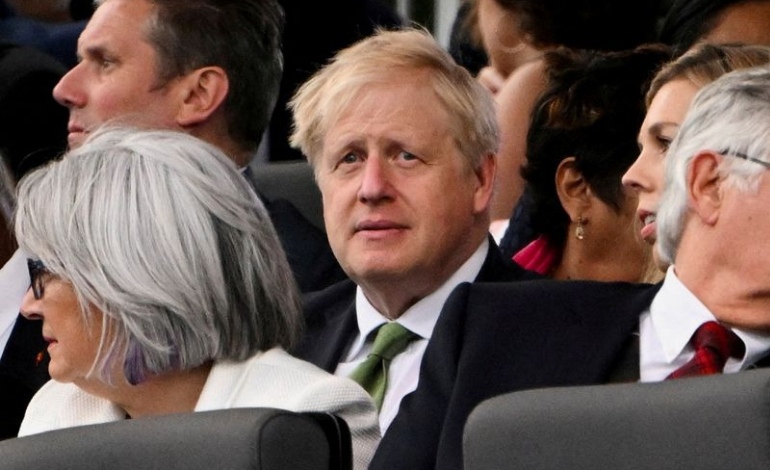Boris Johnson, the British prime minister, will face a confidence vote later on Monday, after a growing number of Conservative legislators questioned his authority in the wake of the "partygate" controversy

PM Johnson, who was appointed prime minister in 2019, has been under increasing criticism because he has been unable to move on from a report that revealed alcohol-fueled gatherings at the heart of power during the COVID-19 lockdown.
Jesse Norman, a loyalist who served as a junior minister in the finance ministry between 2019 and 2021, launched a stinging attack on Johnson, saying the prime minister's continued power humiliated both the electorate and the party.
He is one of numerous Conservative members who have expressed fear that Johnson, 57, has lost his authority to manage the United Kingdom, which is experiencing recession, increasing prices, and strike-induced transport mayhem in the capital London.
In a note, Graham Brady, head of the Conservative Party's 1922 Committee, which represents rank-and-file Conservative lawmakers, said, "The threshold of 15 percent of the parliamentary party demanding a vote of confidence in the leader of the Conservative Party has been exceeded."
Brady said a vote would take place on Monday between 6 and 8 p.m. (1700-1900 GMT).
"Following that, the votes will be counted.
An announcement will be made at a later day and time to be determined "Brady said.
The vote was "a chance to stop months of speculation and allow the government to draw a line and move on, delivering on the people's objectives," according to a representative for PM Johnson's Downing Street office.
"The Prime Minister welcomes the opportunity to make his argument to MPs (members of parliament) and will remind them that there is no more formidable political force than when they are unified and focused on the issues that important to people."
Anger Is Growing
For Johnson to be ousted, a majority of Conservative legislators - 180 - would have to vote against him, something some Conservatives believe will be tough to do.
If the bill is passed, a leadership election will be held to choose his successor.
Johnson and his government have pushed legislators to move on after the release of the devastating investigation into the so-called "partygate" incident, which detailed fights and alcohol-induced vomiting at lockdown-breaking parties in Downing Street.
However, when many of them returned to their constituencies, or voting districts, last week, they were met with a chorus of complaints about Johnson's behaviour.
The public booed and jeered the prime minister at the Queen's Platinum Jubilee celebrations over the weekend, however there were some shouts for him.
After the parties' reports, Steve Barclay, the new chief of staff at Downing Street, encouraged lawmakers not to "spend the next half of the parliament on distractions over leadership."
"We will be sending exactly the reverse message if we continue to divert our trajectory as a Conservative Party - and by extension the government and the country - into a protracted leadership dispute," he wrote on the Conservative Home website.
Norman cited his issues about Johnson's behaviour as well as a lack of "goal," probably the clearest hint that criticism of the British leader has expanded beyond a vociferous handful of so-called rebels.
"Neither the Conservative Party nor this country can afford to waste the next two years adrift and distracted by unending debate over you and your leadership," he wrote in a letter released on Twitter.
"Remaining in office not only insults the electorate and the tens of thousands of individuals who support, volunteer, represent, and campaign for our party; it also increases the likelihood of a decisive change of administration at the next election.
This has the potential to be disastrous for the country."